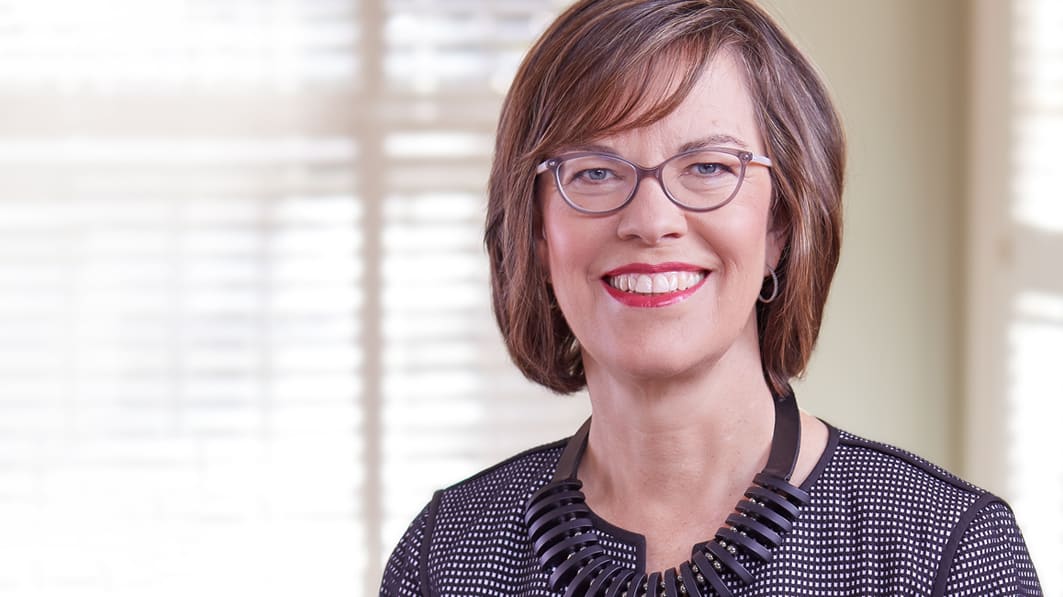Cheryl Bachelder still remembers that hot and sticky night in her family’s Singapore home, an
open-air British colonial where bugs, lizards and birds paraded in and out like uninvited guests.
Cheryl was home from college for Christmas break, typically a joyous occasion for her, her parents
and her three siblings. But not this time. Late that evening she found her father pacing the living
room floor, worry etched deep into the lines on his face. She asked him what was wrong.
Cheryl recalls his answer: “Tomorrow I have to close a factory and 200 families will be impacted.
I’m just sick about it.”
The manufacturing plant was in Malaysia — a factory Cheryl’s father had built, bustling with
employees he had hired. In less than 12 hours, these hardworking laborers would walk into the plant
for the last time.
“I was struck by how emotional my father was about the lives of these people,” Cheryl remembers. “He
felt responsible for them. This was more than a business decision — it was about stewarding the
lives of these employees and their families.”
Decades later, her father’s turmoil still influences Cheryl’s approach to servant leadership. She’s
learned that “if you have to make that kind of huge business decision, you should be sick about it,”
she says. “It’s embedded deep in my wiring now, to just care deeply about the people who are
impacted by [my] decisions.”
It’s a lesson in servant leadership that informed her throughout her remarkable business career.
Cheryl has served as the leader of several food chains, including as CEO and president of Popeyes
Louisiana Kitchen from 2007 to 2017, taking the company’s stock value from its low of $4 a share to
a whopping $79. She’s been featured in Harvard Business Review and The Wall Street Journal
and awarded top honors from the food industry.
For Cheryl, servant leadership is like a family recipe — one to be passed down from generation to
generation. “My [life] purpose is to inspire purpose-driven leaders who exhibit competence and
character in all aspects of their lives,” she says. “That is the organizing principle between my
parenting … and my work.”
Inspiring leadership
The influence she and Chris, her husband of more than 30 years, have had on their daughters is the
legacy she cares about the most. The servant leadership training of their daughters began
unofficially at the dinner table. Cheryl and Chris wove servant leadership lessons into their dinner
conversations about school projects and work issues. The couple also never missed the chance to
point their girls to the ultimate servant leader — Jesus Christ.
“When our daughters were young, they naturally asked why questions,” Chris says. “Many times, these
questions could be easily answered, but often they would lead to more why questions. When this
happened, I made it a standard practice to say, ‘We won’t be certain about the answer to that
question until we get to heaven.’ It was a way to encourage them to seek God and trust Him for the
important answers in life.”
Daughter Kate Odell, who is now married and writes editorials for The Wall Street Journal, remembers
asking those why questions and seeking her parents’ wisdom for answers. More so, she recalls a mom
and dad who demonstrated humble service to their children.
“My parents made a large sacrifice by moving across the state to put me in a high school that would
be a good fit for me, even though their careers and interests may have been elsewhere,” Kate says.
She also remembers a mom who made muffins for breakfast every Friday simply because Kate liked them.
“From what I understand about servant leadership, it isn’t about one-time grand gestures but a
commitment to putting others first over and over again,” Kate muses. “These routines of grace are
what I remember most about my childhood.”
Daughter Tracy Hyde, a married mother of three and a former industrial engineer for The Walt Disney
Co., recollects a favorite childhood memory of her own — a mother-daughter trip. At the time, Cheryl
served as the vice president of marketing and development for Domino’s Pizza, and together they
visited Domino’s locations, connecting with all levels of company employees from the pizza delivery
kid to store managers.
“She encouraged me to jump in and learn how to make pizzas because she knew you can’t lead or serve
people well if you don’t understand the work they do,” Tracy recalls. “The way she interacted with
the employees that she had never met before taught me that a good leader values all people and the
contributions they make, regardless of how big or small their position is.”
Leadership legacy
Today, Cheryl continues to value and invest in the people around her. She left Popeyes in 2017 after
a corporate buyout. She took time to mentor a handful of business and ministry executives and serve
on corporate boards such as Proctor & Gamble, and she recently moved back into a corporate
leadership role as interim CEO of Pier 1 Imports.
She remains available to her daughters as well, even though they’ve made their own homes and
careers. Her daughters know Mom will always be there for them, just as Cheryl’s dad was for her. His
advice informed her views about work, politics, community and parenting. “I had a strong
relationship with him that continued until the day he died,” Cheryl says. “In my life, he was the
person I always called with a major life decision.”
For Cheryl and Chris Bachelder, wise advice, availability and personal example make up the main
ingredients in training kids to become servant leaders. They’ve also found that these ingredients
are best served with a pinch of humility and a dash of sacrifice.
Ana Gascon Ivey is a freelance editor, career coach and writer who lives in the greater Atlanta
area.

















